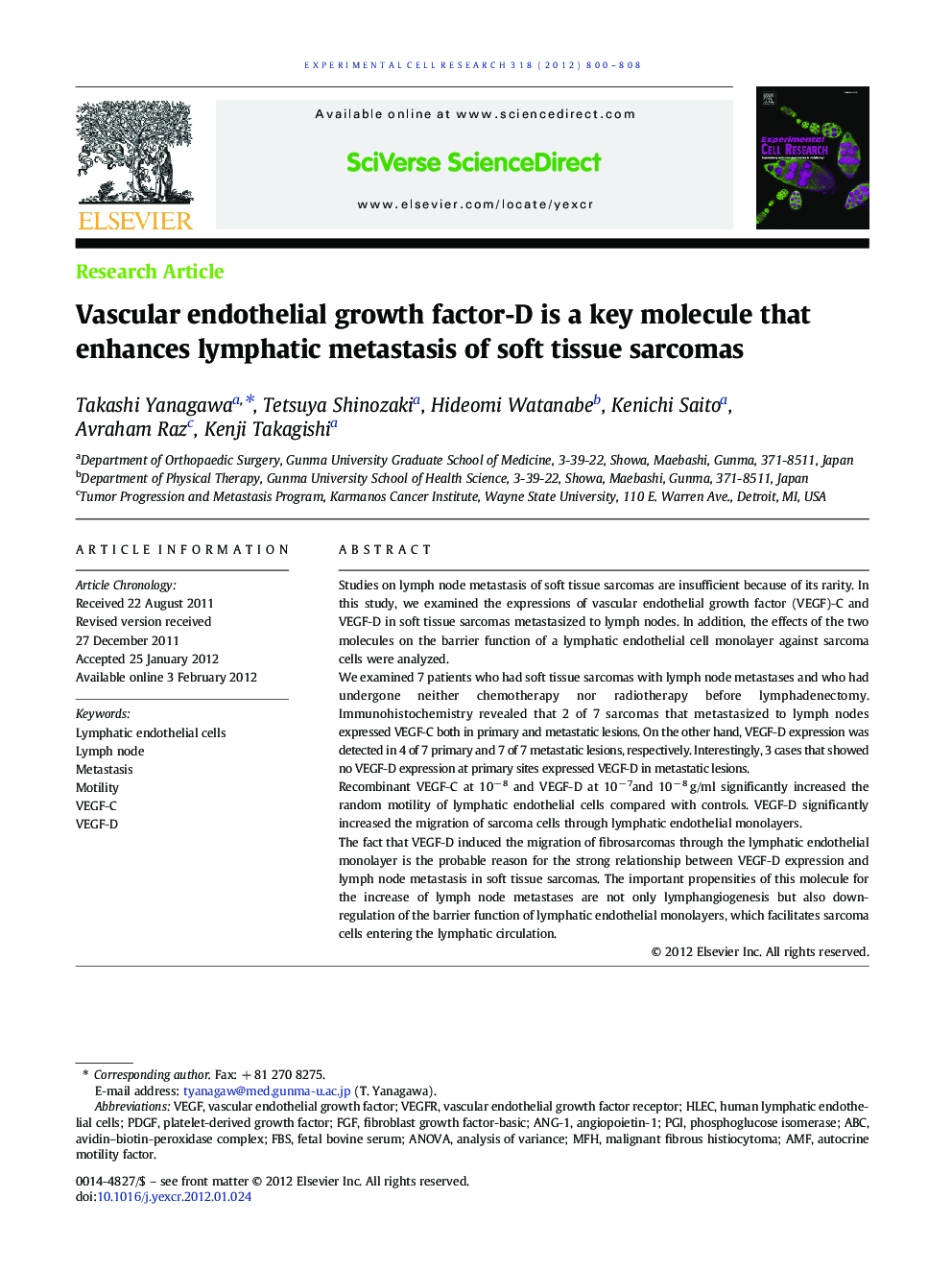| Article ID | Journal | Published Year | Pages | File Type |
|---|---|---|---|---|
| 2130686 | Experimental Cell Research | 2012 | 9 Pages |
Studies on lymph node metastasis of soft tissue sarcomas are insufficient because of its rarity. In this study, we examined the expressions of vascular endothelial growth factor (VEGF)-C and VEGF-D in soft tissue sarcomas metastasized to lymph nodes. In addition, the effects of the two molecules on the barrier function of a lymphatic endothelial cell monolayer against sarcoma cells were analyzed.We examined 7 patients who had soft tissue sarcomas with lymph node metastases and who had undergone neither chemotherapy nor radiotherapy before lymphadenectomy. Immunohistochemistry revealed that 2 of 7 sarcomas that metastasized to lymph nodes expressed VEGF-C both in primary and metastatic lesions. On the other hand, VEGF-D expression was detected in 4 of 7 primary and 7 of 7 metastatic lesions, respectively. Interestingly, 3 cases that showed no VEGF-D expression at primary sites expressed VEGF-D in metastatic lesions.Recombinant VEGF-C at 10− 8 and VEGF-D at 10− 7and 10− 8 g/ml significantly increased the random motility of lymphatic endothelial cells compared with controls. VEGF-D significantly increased the migration of sarcoma cells through lymphatic endothelial monolayers.The fact that VEGF-D induced the migration of fibrosarcomas through the lymphatic endothelial monolayer is the probable reason for the strong relationship between VEGF-D expression and lymph node metastasis in soft tissue sarcomas. The important propensities of this molecule for the increase of lymph node metastases are not only lymphangiogenesis but also down-regulation of the barrier function of lymphatic endothelial monolayers, which facilitates sarcoma cells entering the lymphatic circulation.
